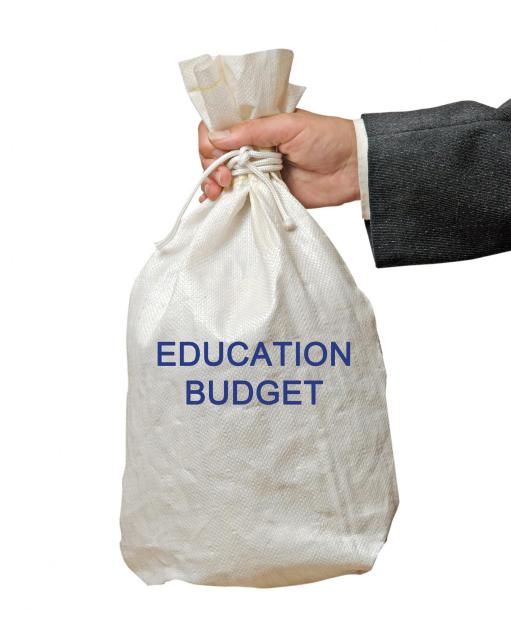2019-20 Budget Year
Education budget trailer bill addresses COVID-related issues
Research Brief
Governor Newsom signed Senate Bill 820 into law on September 18, 2020. This budget trailer bill is a technical clean-up bill for Senate Bill 98, which was signed into law on June 29 as part of the 2020-21 state budget. SB 820 contains several clarifications that have an impact on early childhood, preK-12 schools, and higher education.
Major provisions of this bill affect both schools and community colleges. They are listed first, followed by more provisions specific to each division. You can also download our pdf version.
MAJOR PROVISIONS
Revises deadlines for spending COVID-19 learning loss mitigation funds
- $355.2 million of these funds are from the Federal Trust Fund. The deadline for spending these funds is extended by one year, to September 30, 2022 (previously Sept. 30, 2021).
- $539.9 million of these funds are from the state General Fund. The deadline for spending these funds is extended to June 30, 2021 (previously Dec. 30, 2020).
- $4.4 billion of these funds are from the Coronavirus Relief Fund and there is no change to the deadline for spending these funds (December 30, 2020).
Broadens eligibility to more districts for low-cost borrowing
- Allows school and community college districts, and county offices of education, to use the California School Finance Authority (CSFA) intercept, which will enable those districts to lower borrowing costs to address state funding deferrals.
Broadens use of funding for instructional materials and lottery funds
- Existing law defines “instructional materials” and “technology-based materials” such that it excludes electronic equipment and could prohibit a school district from purchasing computers or related equipment. The bill deletes language that excludes electronic equipment from the definition of technology-based materials and the provisions prohibiting the replacement of computers or establishing a new computer lab. It specifies that technology-based materials also include the electronic equipment required to make use of those materials used by pupils and teachers as a learning resource, including, but not limited to, laptop computers and devices that provide internet access.
- Clarifies the definition of “instructional materials” in a new section of the Government Code, which will allow schools and community colleges to use lottery funds to purchase instructional materials. It specifies that instructional materials “include, but are not limited to, laptop computers and devices that provide internet access for use by pupils, students, teachers, and faculty as learning resources,” and provides more flexibility in the use of these funds.
PreK-12 SCHOOLS
Provides funding for enrollment growth
- Amends the Budget Act to allow Local Educational Agencies (LEAs), for their 2020-21 apportionment, to apply for either planned increases or actual planned growth to classroom-based student attendance in lieu of the 2019-20 average daily attendance (ADA) hold-harmless guarantee adopted in the Budget Act of 2020-21 under certain conditions.
- Excludes non-classroom-based charter schools from eligibility for enrollment growth funding.
Provides additional support for early childhood education/child care providers
- Clarifies that funding for child care providers located on an LEA campus qualifies for the hold harmless provision in the Budget Act, if the LEA is closed per public health guidance or order.
- Increases funding by $31.25 million in federal Child Care and Development Block Grant funds (CCDBG) and increases allowable non-operative days for alternative payment program providers by another 14 days (for COVID-19 related closures).
- Extends the waiver of family fees for child care services through Aug 31, 2020, and waives family fees for the 2020-21 fiscal year.
Updates other deadlines and requirements
- Executive Order N-66-20 authorized postponement of various educator assessment requirements, including attaining all other credential requirements, during the pandemic. The trailer bill extends the postponement to August 2021.
- Physical Performance Test for 2020-21 is suspended.
- The Budget Act postponed the deadline for developing an observation protocol for teaching English Language Learners to 2021. This trailer bill postpones it an additional year to 2022.
- The timeline for initial assessment of pupils for English language proficiency using the English Language Proficiency Assessment for California (ELPAC) is extended by 45 calendar days for the 2020-21 fiscal year. LEAs are required to screen new pupils, pending assessment results, to ensure those informally determined to be English learners receive appropriate supports as soon as possible.
Increases funding for summer meal program
- Increases the 2020-21 Budget Act appropriation for the COVID closure and summer meal program state reimbursement from $112 million in CARES Act funds to a total of $192 million through a combination of federal and general funds to reimburse LEAs.
Clarifies use of online instruction
- Clarifies that LEAs are not prohibited from adopting online instruction as part of a distance learning program and clarifies that except as required under a distance learning program, individuals may not record an online course without teacher and principal consent.
Extends encumbrance date of Community Schools Partnership Grant funds
- Amends the date by which grant funds from the California Community Schools Partnership Program must be encumbered to September 22, 2022, to align with the availability period for the federal Elementary and Secondary School Emergency Relief (ESSER) funds.
Amends appropriation for California Dyslexia Initiative
- Amends the appropriation for the Dyslexia Initiative to reflect $2 million in one-time Proposition 98 General Fund and $2 million in one-time federal funds instead of $4 million in one-time federal funds.
COMMUNITY COLLEGES
Expands Community College Board of Governors
- Adds the Lieutenant Governor as a voting member to the Board of Governors
UNIVERSITY
Allows University of California to use savings to avoid layoffs
- As of Jan. 1, 2021, General Fund capital expenditures may proceed only after certification that cleaning, maintenance, groundskeeping, food service, and other work traditionally performed by UC employees may not be outsourced.
- Authorizes UC to use savings from refunding, retiring, or restructuring bond debt to mitigate impacts to programs and services that predominantly support underrepresented students and to provide for continued employment for employees without layoffs, furloughs, and reductions in time.
MORE INFO
For additional information about SB 820, please contact:
Aimee Shreck Research Director
Ron Rapp Legislative Representative
Telephone (916) 446-2788




